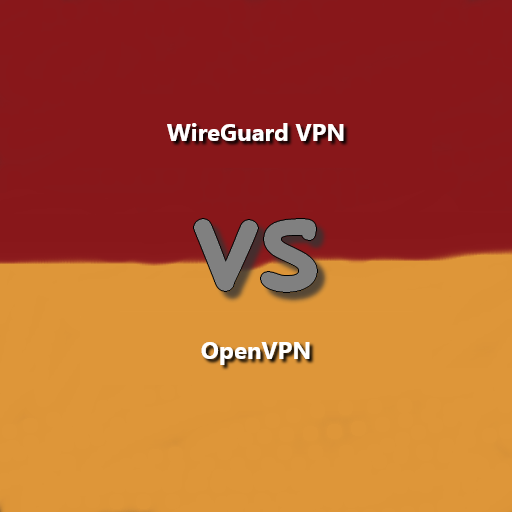For Linux users looking to enhance their online security and privacy, choosing the right VPN can be a daunting task. With an array of options available, two popular choices are OpenVPN and WireGuard. In this article, we’ll explore the key differences between these two VPN protocols, helping you make an informed decision.
Why VPNs are important for Linux users
When it comes to online security, Linux users are not exempt from potential threats. A VPN (Virtual Private Network) provides an extra layer of protection by encrypting internet traffic, ensuring that your data remains secure and inaccessible to hackers or eavesdroppers. VPNs also help preserve your privacy by masking your IP address and location.
What to consider when choosing a VPN
Before diving into the differences between OpenVPN and WireGuard, it’s important to consider a few key factors when choosing a VPN for your Linux device.
- Security: Look for a VPN that uses strong encryption protocols, such as AES-256. Additionally, check if the VPN provider has a strict no-logs policy, ensuring that your online activities are not recorded.
- Speed and Performance: VPNs can sometimes slow down internet speeds. Ensure that the VPN you choose offers fast and reliable connections, without compromising performance.
- Compatibility: Not all VPN protocols are supported on Linux devices. Make sure the VPN you select is compatible with your Linux distribution.
- User-Friendly Interface: A VPN should be easy to install and navigate, even for users with limited technical knowledge.
Now, let’s delve into the differences between OpenVPN and WireGuard.
| Difference | OpenVPN | WireGuard |
|---|---|---|
| Complexity | OpenVPN can be more complex to set up and configure due to its extensive features and compatibility with different platforms. | WireGuard is designed to be lightweight and simple, making it easier to install and configure. |
| Speed | OpenVPN may exhibit slower speeds due to its legacy code and encryption overhead. | WireGuard is known for its exceptional performance and connection speeds. |
| Audited | OpenVPN has undergone multiple security audits, making it a reliable choice. | WireGuard is still relatively new but has gained attention for its innovative design and extensive peer review. |
| Platform Support | OpenVPN is compatible with a wide range of operating systems, including Linux. | WireGuard has gained popularity for its native support in the Linux kernel. |
In summary, while OpenVPN offers robust security and wide compatibility, WireGuard provides a simpler and faster VPN solution specifically optimized for Linux. Consider your specific needs and priorities to determine which VPN protocol is the best fit for your Linux device.

OpenVPN for Linux
Overview of OpenVPN
OpenVPN is an open-source virtual private network (VPN) solution widely used for secure communication over the internet. It provides a powerful and flexible VPN platform that ensures privacy and encryption for network connections. With OpenVPN, users can create secure connections between remote locations and access resources as if they were physically present on the same local network.
Setup and configuration on Linux
Setting up OpenVPN on Linux is relatively straightforward. First, you need to install the OpenVPN package using your distribution’s package manager. Once installed, you can configure the OpenVPN server and client by creating configuration files. These files contain the necessary settings for establishing a VPN connection, such as server addresses, authentication methods, and encryption parameters.
OpenVPN supports a wide range of authentication methods, including user passwords, certificate-based authentication, and two-factor authentication. This flexibility allows you to choose the authentication method that best fits your security requirements.
Benefits and drawbacks of OpenVPN
Benefits:
- High Security: OpenVPN uses OpenSSL encryption protocols, making it highly secure and resistant to attacks.
- Cross-Platform Compatibility: OpenVPN is compatible with various operating systems, including Linux, Windows, macOS, Android, and iOS. This compatibility allows for seamless integration across different devices and platforms.
- Scalability: OpenVPN is scalable and can support a large number of simultaneous connections, making it suitable for businesses of all sizes.
Drawbacks:
- Complex setup: Configuring OpenVPN on Linux can be more complex compared to other VPN solutions. However, numerous resources and community support are available to assist with the setup process.
- Performance: While OpenVPN offers reliable security, it may not achieve the same speed and performance levels as newer VPN protocols.
In conclusion, OpenVPN is a robust VPN solution for Linux systems, providing a secure and reliable method for establishing encrypted connections. Its cross-platform compatibility, scalability, and high-security features make it a popular choice among users. Although the initial setup may require some technical knowledge, the benefits of OpenVPN outweigh its drawbacks for those seeking a secure VPN solution on Linux.

WireGuard for Linux
Overview of WireGuard
WireGuard is a modern, open-source VPN protocol designed for Linux that aims to provide fast and secure communication. It is known for its simplicity and efficiency, offering a streamlined approach compared to traditional VPN solutions. WireGuard utilizes state-of-the-art cryptography and operates as a kernel module, making it highly efficient and resource-friendly.
Setup and configuration on Linux
Setting up WireGuard on Linux is relatively straightforward. First, you need to ensure that your Linux kernel supports the WireGuard module. Most modern Linux distributions have the necessary kernel modules installed by default. Once confirmed, you can proceed to install the WireGuard packages for your specific distribution.
After the installation, you will need to generate a set of private and public keys for the VPN server and each client device. These keys are then used to establish secure communication between them. You can use the generated keys to configure WireGuard on both the server and client devices using simple configuration files. Additionally, various tools and utilities are available to help manage and monitor your WireGuard interface on Linux.
Benefits and drawbacks of WireGuard
WireGuard offers several advantages over other VPN protocols, including speed, simplicity, and strong security. Its minimalistic design allows for better performance and reduced code complexity, resulting in faster data transfer speeds. Additionally, WireGuard uses modern cryptographic techniques, ensuring robust encryption and secure data transmission.
Another benefit of WireGuard is its ease of use. With a simple and intuitive configuration process, setting up a VPN with WireGuard becomes hassle-free, even for Linux beginners. Moreover, it has a smaller attack surface compared to other VPN protocols, making it less prone to vulnerabilities and security flaws.
However, it is important to note that WireGuard is still considered relatively new and may not be as widely supported as other VPN solutions. Some older Linux distributions may not have native support for WireGuard out of the box, requiring additional manual configuration or installation of backported kernel modules. Additionally, while the protocol has undergone thorough testing and auditing, ongoing development may introduce changes that could potentially impact compatibility.
In conclusion, WireGuard is a promising VPN protocol for Linux with its modern design and efficient performance. It offers simplicity and strong security, making it an attractive option for individuals and organizations looking for a reliable and fast VPN solution.

Performance and Security Comparison
Speed and performance of OpenVPN vs. WireGuard
When it comes to choosing a VPN protocol for your Linux system, it’s crucial to consider both speed and performance. OpenVPN has been the go-to option for years due to its robustness and reliability. However, WireGuard has emerged as a new contender that offers impressive performance improvements.
OpenVPN utilizes the OpenSSL library to secure the connections, which can introduce some overhead and impact the overall speed. On the other hand, WireGuard is built with simplicity in mind, resulting in faster speeds due to its streamlined codebase and innovative design. Users have reported significant speed improvements with WireGuard, making it a worthy alternative for those seeking high-performance VPN connections.
Security features and protocols
Both OpenVPN and WireGuard prioritize security, although they differ in terms of the protocols they use. OpenVPN utilizes SSL/TLS protocols, providing a strong and widely-adopted security framework. This protocol combination ensures the confidentiality and integrity of data transmitted over the VPN connection.
WireGuard, on the other hand, takes a different approach. It utilizes modern encryption protocols such as ChaCha20 and Poly1305, which are known for their efficiency and security. WireGuard’s simplicity allows for easier code auditing, reducing the potential for vulnerabilities.
It’s important to note that both OpenVPN and WireGuard offer similar security features such as encryption and authentication. However, WireGuard’s lightweight design and modern encryption algorithms provide a potential edge for those seeking faster and more secure VPN connections.
In conclusion, when choosing between OpenVPN and WireGuard for your Linux system, it’s crucial to consider factors such as speed, performance, and security. OpenVPN is a well-established protocol that provides robustness and reliability. However, WireGuard offers impressive performance improvements and utilizes modern encryption algorithms. Ultimately, the choice depends on your specific needs and priorities. Whichever you choose, implementing a VPN on your Linux system is a vital step in ensuring secure and private internet connections








I’ve been a regular on this amazing website lately, they have phenomenal content for users. The site owner clearly cares about engaging visitors. I’m a huge fan and hope they keep up their excellent work!